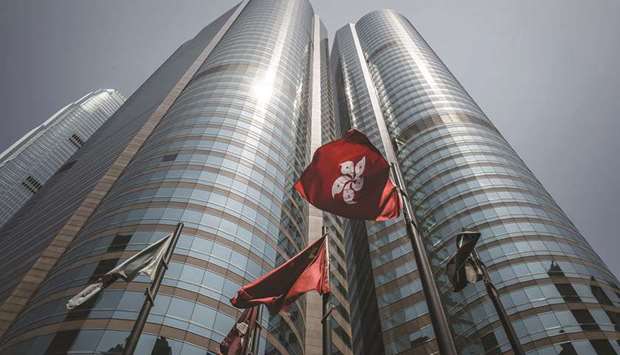Asian markets were mixed yesterday with worries that US lawmakers might not agree to a fresh stimulus deal any time soon playing up against optimism about upcoming US-China trade talks.
Both nations are due this weekend to meet to review their much-vaunted trade pact, which had been a cause for concern among investors owing to ongoing tensions between the superpowers.
But Donald Trump’s top economic adviser eased concerns Tuesday by saying the pact was “fine right now”.
Larry Kudlow told reporters that despite the tensions, “one area we are engaging is trade”. He added that Beijing had promised to stick to its promises on the January trade deal and there was evidence it was increasing purchases.
However, optimism that US lawmakers will thrash out a new stimulus package to accompany Federal Reserve’s ultra-loose monetary policy is waning.
Senate Majority Leader Mitch McConnell gave traders a jolt when he told Fox News there had been no progress, fanning concerns the talks could take a lot longer than envisaged.
“Another day has gone by with an impasse,” McConnell said, sparking a sell-off on Wall Street, which had been well in positive territory until then.
“The hope was that US politicians will look to restart negotiations on a new fiscal stimulus this week.
Now with no talks scheduled, the deadlock between Republicans and Democrats is at risk of dragging on for weeks,” National Australia Bank’s Rodrigo Catril said.
Hong Kong rose 1.4%, with airlines boosted by a report that the city’s airport might restart transfer flights to China soon.
Tokyo gained 0.4 %, while Seoul added 0.6% and Singapore put on 0.5%.
Manila and Jakarta each rose 0.7%.
But Shanghai fell 0.6% while Sydney, Taipei and Mumbai were also lower.
Wellington dropped more than 1% after a three-day lockdown was announced for Auckland, New Zealand’s biggest city with a population of 1.5mn, after four people tested positive, ending a 102-day run that had fanned hopes the disease had been contained.
London started slightly higher as data showed the economy suffered a historic contraction in the second quarter but officials said it was showing signs of bouncing back.
The UK economy shrank a record 20.4% in the second quarter but deputy national statistician Jonathan Athow said things “began to bounce back in June, with shops reopening, factories beginning to ramp up production and house-building continuing to recover.”
Michael Hewson at Markets.com said the reading largely was in line with expectations and “economic activity is bouncing back” but warned that “getting back to 2019 levels of activity is going to take a very long time”.
“Britain’s economy is on the ropes, but we knew this already,” he added.
Frankfurt fell and Paris edged up in morning trade.
“When you walk back the market’s expectations of an imminent fiscal deal, it is like poking the balloon with a straight pin as all semblance of near-term optimism gets immediately deflated,” said AxiCorp’s Stephen Innes.
“Let us face it, the only relevant information that might aid investors’ comprehension of the path of the real economy has come from fiscal stimulus chatter,” he added.
“Take that out of this week’s equation, and you are left hoping on a wing and a prayer for a vaccine.”
Analysts said easing concerns about the future of the US-China trade pact and healthy China data provided some cheer to investors, giving them the confidence to shift out of safe havens such as gold and the yen.
Gold prices fell 3%, extending the previous day’s sell-off on profit-taking and owing to a pick-up in the dollar, which had been hammered through July to push the yellow metal to multiple records.
In Tokyo, the Nikkei 225 closed up 0.4% to 22,43.96 points; Hong Kong Hang Seng ended up 1.4% to 25,244.02 points and Shanghai Composite closed down 0.6% to 3,319.27 points yesterday.

An external view of the Hong Kong Stock Exchange building. The Hang Seng closed up 1.4% to 25,244.02 points yesterday.
